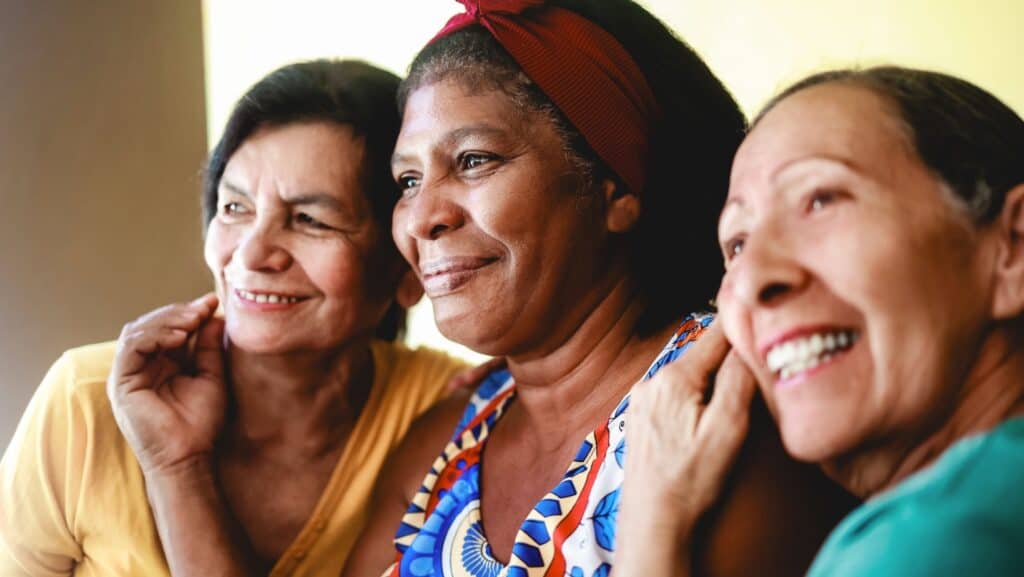What Women Over 60 Teach Us About Resilience
Data from the landmark Women’s Health Initiative shows that resilience in older women stems less from circumstance than from education, social ties, and self-perception.
Women over 60 are living examples of resilience, drawing on lifetime adaptation, resourcefulness, and community to overcome adversity and sustain personal and collective well-being. Primary studies—especially the massive Women’s Health Initiative research—show resilience in older women is shaped by education, social support, self-rated health, stress management, spirituality, and experiences across socioeconomic and ethnic backgrounds. This article investigates what women over 60 teach us about resilience, rooted in authoritative research, population data, and the words of these women themselves.

Defining Resilience After 60
Resilience is the ability to “bounce back” or adapt well despite adversity, trauma, or chronic stress. Among women over 60, resilience is not just a trait but a fluctuating process influenced by biopsychosocial factors—including emotional well-being, optimism, adaptive coping, and life satisfaction. The largest U.S. dataset, the Women’s Health Initiative (WHI), surveyed over 29,000 women age 80 and older: results show older age, greater education, lower stress, strong social ties, and independent living all correlate with higher resilience.
Scientific Measures: How Is Resilience Studied?
Researchers use validated scales, notably the Brief Resilience Scale and Connor-Davidson Resilience Scale (CD-RISC), to measure how quickly older adults recover from stressful events and their overall capacity to adapt. Reliability testing in WHI and similar cohorts confirms these scales work well for older women. For instance, a CD-RISC study found that cognitive complaints, optimism, emotional well-being, and leadership qualities were key predictors.
Major Findings: What Predicts Resilience?
Education and Lifelong Learning
Older women with higher educational attainment show statistically greater resilience, possibly due to improved problem-solving skills, autonomy, broader social networks, and the financial stability that education affords. Analysis from WHI shows resilience scores consistently rise with educational level, regardless of race or ethnicity.
Social Support and Engagement
Strong social networks—involving friends, family, community groups, and religious organizations—substantially increase resilience scores for women over 60. Social support correlates with positive emotional states and better self-rated health, buffering against depression and functional decline.
Self-Rated Health and Stress Management
Women reporting good or excellent health, as well as lower perceived stress scores, report far greater resilience. Chronic illness does not preclude resilience, but symptom burden and depression do lower resilience indexes.
Read: 10 Science-backed hacks to beat stress fast

Living Arrangement
Surprisingly, women living alone (not isolated) have slightly higher resilience—suggesting empowerment through independence and resourcefulness. This finding upends stereotypes about isolation, highlighting the strength of self-sufficiency and adaptive coping among older women.
The Role of Race, Ethnicity, and Socioeconomic Status
WHI and published analyses indicate no major differences by race or ethnicity in average resilience among women aged 80+ (p = .06). However, neighborhood socioeconomic status (SES) affects resilience: women in high-SES neighborhoods have higher average resilience (mean 4.00 out of 5) than those in low-SES areas (mean 3.94). Discrimination, financial strain, and access to healthcare impact resilience, yet many women overcome these barriers through spirituality, community activism, and adaptive strategies forged over lifetimes of challenge.
Spirituality, Coping, and Adaptation
Spiritual beliefs can comfort and reinforce resilience, particularly for those facing loneliness or adversity. However, WHI analysis found that greater spirituality may not always correlate with higher resilience (sometimes inversely). Instead, it is the use of spiritual practices alongside secular coping mechanisms—mindfulness, reflection, activism—that support healthy adaptation.
Read: Somatic Movement Therapy: Unlocking the Body-Mind Connection
Lifelong Adversity: Widowhood, Loss, and Trauma
Older women’s resilience is continually tested: widowhood, loss of family members, chronic disease, and major life transitions are common from the 60s onward. Primary studies show that women who adapt by engaging in daily activities, finding meaning in loss, and maintaining purpose retain higher resilience. The skills developed through grieving, caregiving, and chronic illness management—such as flexibility, resourcefulness, and hope—are central lessons.
Everyday Acts and “Aging in Place”
Contrary to stereotypes, 90% of older women do not reside in institutions. Aging in place demands adaptability, managing mobility, health, and social relationships independently. Many cite the importance of community involvement and the pursuit of “small victories”: cooking, gardening, mentoring, activism, and caring for others. Successful adaptation involves not only bouncing back but also continually reconstructing meaning.

Resilience Across Cultures
The concept of resilience is cross-cultural, but strategies and outcomes differ. Black women aged 80+ show resilience rates equal to, sometimes higher than, white counterparts—partly due to “survivorship bias” after overcoming lifetime adversity. Latina and Asian women report that resilience builds through strong family traditions and community connections, even amid economic hardship. Effective interventions must be culturally sensitive, acknowledging diversity while promoting shared strengths.
Lessons and Strategies: What Older Women Teach
Adaptive Thinking
Women over 60 demonstrate “adaptive thinking”—the ability to change perspectives, find new solutions, and reframe challenges as opportunities. This is evident in narratives shared in resilience research and qualitative interviews.
Emotional Regulation and Optimism
Older women exhibit emotional regulation and optimism, shaped by surviving losses and disappointments. They teach the importance of acceptance—recognizing what cannot be changed, focusing energy on what can.
Service and Mentorship
Many older women find renewed strength through service—volunteering, mentoring younger generations, and advocating for others. This purpose-driven approach sustains resilience and community health.
Public Health and Policy Implications
Growing evidence on late-life resilience—rooted in longitudinal studies like WHI and similar international research—suggests policymakers must support social engagement, access to health care, and community programs for older women. Health professionals are urged to design interventions targeting stress reduction, depression management, physical activity, and nutritional support. Recognizing the contributions and capacities of older women challenges prevailing stereotypes and reshapes aging policy.
The Takeaway: Wisdom, Adaptation, and Contribution
Women over 60 provide living proof that resilience is not the absence of adversity but a lifelong capacity to adapt, grow, and find meaning. Their stories—supported by authoritative research—teach the value of connection, emotional strength, optimism, and lifelong learning. In their words, lives, and data, the lesson is clear: Resilience is both a process and a resource, cultivated across decades and generations, offering guidance for all ages.







